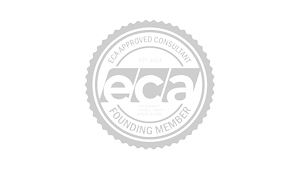In an era where environmental responsibility is not just valued but expected, businesses around the globe are on a quest to align their operations with sustainable practices. You’re likely among those seeking effective strategies to minimise environmental impact while still fostering economic growth.
Sustainable energy audits emerge as a beacon of hope in this landscape, offering a pathway to not only reduce your carbon emissions but also uncover cost-saving opportunities through enhanced energy efficiency.
Understanding the complexities and challenges of integrating sustainable practices into your business can be daunting. From navigating the intricate web of sustainability standards to the pressure of maintaining a competitive edge, the hurdles are significant.
Yet, the pursuit of sustainability is not a solitary journey. With a nuanced grasp of these challenges and a commitment to providing actionable insights, this article aims to demystify sustainable energy audits. By exploring their multifaceted benefits, we aim to equip you with the knowledge to make informed decisions that benefit both the planet and your bottom line.
Read on to discover how sustainable energy audits can become a cornerstone of your business’s environmental strategy.
Key Takeaways
- Sustainable energy audits help identify areas for energy efficiency improvement, leading to reduced energy consumption and costs.
- Implementing targeted measures based on audit findings not only saves money but also contributes to a more sustainable future by reducing carbon footprint.
- By conducting sustainable energy audits, businesses can ensure compliance with environmental regulations and enhance their corporate reputation through commitment to environmental stewardship.
- Choosing sustainable energy audits can bring immediate financial benefits, improve long-term financial performance, and drive innovation and growth by lowering operational costs and influencing financial decisions.
Benefits of Sustainable Energy Audits
Sustainable energy audits offer numerous benefits for businesses seeking to enhance their energy efficiency and reduce their environmental impact. Conducting regular energy audits is of utmost importance for companies looking to optimise their energy consumption.
By identifying areas for energy efficiency improvement, businesses can implement targeted measures to reduce their energy consumption and costs. This not only helps organisations save money but also contributes to a more sustainable future by reducing their carbon footprint.
Energy audits also play a crucial role in ensuring compliance with environmental regulations. By assessing energy usage and identifying potential areas of non-compliance, businesses can take proactive steps to meet regulatory requirements. This not only helps avoid penalties and legal issues but also enhances corporate reputation by showcasing a commitment to environmental stewardship.
Moreover, sustainable energy audits can lead to increased stakeholder engagement. As consumers become more conscious of environmental issues, they are increasingly drawn to businesses that prioritise sustainable practices. By demonstrating a commitment to energy efficiency, companies can attract and retain environmentally conscious customers, investors, and partners.
In addition to environmental benefits, energy audits can also maximise operational efficiency and cost savings. By identifying energy-saving opportunities and implementing energy-efficient technologies, businesses can reduce their operational costs and improve their overall productivity.
Cost Savings Through Energy Efficiency
Cost savings through energy efficiency is a crucial aspect of sustainable energy audits for businesses.
By identifying and implementing energy-saving strategies, businesses can significantly reduce their energy consumption and lower their energy bills.
This not only leads to immediate financial benefits but also contributes to improved financial performance in the long run.
Financial Benefits of Efficiency
Improving energy efficiency in business operations can result in significant financial gains. By conducting energy audits and addressing inefficiencies, companies can lower expenses and maximise profits.
Here are three ways in which businesses can benefit financially from efficiency:
- Cost savings: Energy audits identify areas where energy is wasted, allowing businesses to make targeted improvements. By implementing energy-efficient technologies and practices, companies can reduce their energy consumption and lower utility bills. These cost savings directly contribute to improving the company’s financial performance.
- Operational cost reduction: Optimising energy usage not only saves on utility bills but also reduces other operational costs. For example, efficient lighting systems require less maintenance and replacement, further lowering expenses for businesses.
- Financial sustainability: Energy audits help businesses identify cost-saving opportunities and improve their overall financial sustainability. By prioritising energy efficiency, companies can invest the money saved in other areas of their operations, driving innovation and growth.
Energy-Saving Strategies
By implementing energy-saving strategies, businesses can further capitalise on the financial benefits of efficiency. Energy consumption analysis, conducted through sustainable energy audits, provides valuable insights into areas where energy-saving techniques can be implemented.
These strategies not only contribute to reducing operational costs but also influence financial decisions and gain support from stakeholders. Understanding the energy usage patterns and identifying inefficiencies allow businesses to take a more strategic approach to energy management.
Upgrading to more energy-efficient systems and making adjustments based on audit findings can result in reduced energy consumption and significant cost savings. By addressing these inefficiencies, businesses can not only improve their financial performance but also contribute to a more sustainable future.
Incorporating energy-saving strategies is an innovative way for businesses to optimise their operations while reducing their environmental impact.
Reducing Environmental Footprint
Reducing the environmental footprint of your business is essential for sustainable growth and aligning with global efforts to combat climate change. By implementing sustainable practices and energy conservation strategies, businesses can take significant steps towards reducing their impact on the environment.
Here are three reasons why reducing your business’s environmental footprint through energy audits is crucial:
- Optimising equipment efficiency: Energy audits help identify areas where energy efficiency can be improved, leading to reduced energy consumption and longer equipment lifespan. By optimising equipment efficiency, businesses can align with sustainability goals and minimise their carbon footprint.
- Attracting eco-conscious consumers: Energy audits promote a culture of energy conservation within businesses. This commitment to sustainability attracts eco-conscious consumers who prioritise supporting environmentally responsible companies. By reducing your environmental footprint, you can enhance your company’s reputation and gain a competitive edge in the market.
- Ensuring uninterrupted business operations: Mitigating risks through energy audit findings is crucial for industries like healthcare and manufacturing. By identifying and addressing energy inefficiencies, businesses can ensure uninterrupted operations, reduce downtime, and maintain productivity levels.
Improving Operational Efficiency
Optimising operational efficiency is crucial for businesses seeking to maximise productivity and minimise costs. One effective way to achieve this is through energy management and equipment optimisation, which can be facilitated by sustainable energy audits. By conducting energy audits, businesses can identify areas where energy is being wasted or used inefficiently, allowing them to implement measures to improve operational efficiency.
Improving equipment efficiency through energy audits can have several benefits. Firstly, it can result in reduced energy consumption, leading to cost savings for the business. By identifying and addressing energy inefficiencies, businesses can lower their energy bills and allocate those savings towards other areas of their operations. Secondly, energy audits can help extend the lifespan of equipment. By ensuring that equipment is operating at its optimal efficiency, businesses can reduce wear and tear, minimising the need for frequent repairs or replacements.
Moreover, energy audits can mitigate risks and ensure uninterrupted business operations, particularly in critical industries like healthcare and manufacturing. By identifying potential energy disruptions or vulnerabilities, businesses can implement measures to safeguard against unplanned downtime. This can help avoid costly production delays and maintain smooth operations.
In addition to the financial benefits, implementing measures based on energy audit findings aligns with environmental commitments and can enhance a company’s reputation. By adopting energy conservation practices, businesses can reduce their carbon footprint and contribute to sustainability efforts. This not only appeals to increasingly environmentally conscious consumers but also positions the company as an innovative and responsible industry leader.
Compliance With Sustainability Standards
Compliance with sustainability standards is crucial for businesses to demonstrate their commitment to responsible environmental practices and meet regulatory requirements. Adhering to these standards helps companies ensure that they are operating in an environmentally responsible manner and are in compliance with relevant environmental regulations.
Here are three reasons why compliance with sustainability standards is essential:
1) Avoiding penalties: By complying with sustainability standards and regulations, businesses can avoid penalties and legal consequences. Non-compliance can result in fines, lawsuits, and damage to the company’s reputation. Adhering to sustainability standards is a proactive approach to risk management and can help businesses avoid potential legal and financial setbacks.
2) Demonstrating commitment to responsible practices: Meeting sustainability standards shows that a business is committed to reducing its environmental impact and adopting responsible practices. This commitment can enhance the company’s corporate reputation, attract environmentally conscious customers, and improve stakeholder engagement.
3) Ensuring the effectiveness of sustainability standards: Compliance with sustainability standards is essential to ensure that they are effective in achieving their intended goals. By following these standards, businesses contribute to the collective effort of protecting the environment and promoting sustainable development.
Enhancing Brand Reputation
Enhancing brand reputation through sustainable energy audits can provide a significant boost to brand credibility and have a positive environmental impact.
By showcasing a commitment to sustainability and responsible environmental practices, businesses can attract environmentally conscious consumers and build long-term brand loyalty.
In addition, differentiating from competitors and demonstrating environmental responsibility can strengthen relationships with customers, investors, regulators, and the local community.
Ultimately, this can help build a corporate reputation for sustainability and responsible environmental practices.
Brand Credibility Boost
Businesses can significantly enhance their brand reputation and credibility by incorporating sustainable energy audits into their operations.
Here are three reasons why sustainable energy audits can boost brand credibility:
- Demonstrating environmental responsibility: By conducting energy audits and implementing sustainable practices, businesses showcase their commitment to reducing emissions and minimising their environmental impact. This demonstrates their dedication to sustainability and positions them as responsible corporate citizens.
- Attracting environmentally conscious consumers: Consumers today are increasingly concerned about the environment and seek out brands that align with their values. By prioritising sustainability practices, businesses can attract and retain environmentally conscious consumers, building brand loyalty and trust.
- Differentiating from competitors: Incorporating sustainable energy audits sets businesses apart from their competitors, showcasing their commitment to sustainability and environmental stewardship. This differentiation can lead to increased market share and customer preference.
Positive Environmental Impact
With a positive environmental impact, businesses can enhance their brand reputation and demonstrate their commitment to sustainability. By conducting sustainable energy audits, businesses can showcase their dedication to energy conservation and the use of renewable resources. This commitment not only attracts environmentally conscious consumers but also differentiates businesses from their competitors. It strengthens relationships with customers and stakeholders, building long-term brand loyalty.
Additionally, businesses that prioritise sustainability through energy-saving efforts enhance their relationships with investors, regulators, and the local community. By showcasing their efforts to reduce their carbon footprint and promote sustainable practices, businesses can position themselves as leaders in innovation and environmental responsibility. This not only enhances their brand reputation but also attracts a growing market of consumers who prioritise sustainability in their purchasing decisions.


















